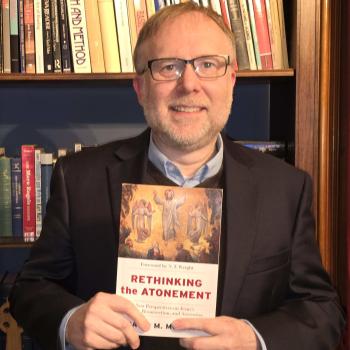This study begins a series on the important subject of covenant in Scripture. God’s covenants with the Genesis patriarchs, Moses and the people of Israel, David, and in prophetic discourse have significant ramifications for New Testament passages, especially in relation to Jesus and the Lord’s Supper, Paul’s letters, and the Epistle to the Hebrews. 
Former Bishop of Durham, N. T. Wright regards covenant keeping to be comprehensive in relation to salvation. In relation to the Apostle Paul it deals with sin along with “saving humans from it, giving them grace, forgiveness, justification, glorification—all this was the purpose of the single covenant from the beginning, now fulfilled in Jesus Christ.”[i]
In fact, for Wright, God’s righteousness is understood as covenant faithfulness, and justification involves covenant membership as part of God’s family that includes all nations.[ii] Wright has both supporters and detractors from his viewpoint, but one thing is clear—the notion of covenant is an important one for interpreting the deliverance of God’s elect people in both the Old and New Testaments.
Richard Hays, well known for his intertextual approach to biblical texts, interprets Scripture based on what he calls new covenant hermeneutics.[iii] Hays affirms that the Apostle Paul interpreted Scripture with a brand new set of eyes when he encountered Christ on the road to Damascus (Acts 9). He learned to see a contrast between the prophetic new covenant and Holy Spirit over against the script of the old covenant of Moses, as is evident in 2 Corinthians 3:3-18. The script of the old covenant for Paul lacks the power “to effect the obedience it commands.” True empowerment for the end-time community in Christ is by the Holy Spirit, who transforms that community into Christ’s likeness.[iv]
Scripture is significantly a narrative about election and covenant promises. It is community centered, in the service of proclamation of the Gospel of Christ, and believers (Christians), when reading Scripture, are to participate in the drama of the prophetic redemption of the last days.[v]
Covenant
What is a covenant? The Hebrew word beriyth (בְּרִית) and the Greek diathȇkȇ (διαθήκη) are the words that normally refer to this term. It can be understood as a solemn pledge or treaty between two or more parties that assures that promises and obligations between them are kept.[vi] In Jewish Scripture, covenants involve essentially two types.
First, there are solemn agreements between humans. Some examples of these include Abraham’s covenant with Abimelech at Beersheba (Genesis 21:27), the Gibeonites with Joshua and Israelites (Joshua 9:11), and Abner’s covenant with David (2 Samuel 3:12-13). Marriage is also associated with covenant making, and unfaithfulness as a breach of it, analogous to Israel’s relationship with God in Hosea (Hosea 1-2; 6:7; 8:1).
Second, and particularly relevant for our studies, are the divine-human covenants. In biblical times these normally involve God having a relationship with an individual human or a people, and this relationship resembles a kinship relationship that relays privileges and blessings for faithfulness as well as responsibilities and consequences for unfaithfulness.[vii] Covenants of this sort include God’s covenant with Noah (Gen 6:18; 8:20–9:17), with Abraham (Gen 15; 17), with Moses and Israel (Exod 19-24), the renewal of the Mosaic covenant at Moab (Deut 26-32), God’s covenant with David (2 Sam 7), and prophetic covenants established in Isaiah (e.g., Isa 59:20-21), Jeremiah (Jer 31-32), and Ezekiel (Ezek 36-37).
The word for covenant in Hebrew and Greek, however, can take on various nuances of meaning depending on its context. A case can also be made that the Hebrew and Greek words mentioned earlier are too limited for addressing all the biblical passages that concern covenants.[viii] The word hesed (חֶסֶד), for example, which refers to God’s steadfast love, is also associated with covenant language. It relates to God’s covenant faithfulness (2 Sam 7:15; Neh 9:32; Ps 25:10; Lam 3:22-23). Various motifs of covenant language will be explored in future lessons.
End Notes
[i] N. T. Wright, Justification: God’s Plan and Paul’s Vision (London: SPCK, 2009), 95. (Italics in the original).
[ii] e.g., Wright, Justification, 116, 121, 133-34.
[iii] Richard B. Hays, Echoes of Scripture in the Letters of Paul (New Haven: Yale University Press, 1989), 122-53, 183–92.
[iv] Hays, Echoes, 131, 143.
[v] Cf. Hays, Echoes,183-86, 191.
[vi] Gordon P. Hugenberger, Marriage as a Covenant: Biblical Law and Ethics as Developed from Malachi, BSL (Grand Rapids: Baker, 1998), 168–215; Paul R. Williamson, Sealed with an Oath: Covenant in God’s Unfolding Purpose, NSBT 33 (Downers Grove: IVP, 2007), 139; George E. Mendenhall and Gary A. Herion, “Covenant,” in The Anchor Yale Bible Dictionary, ed. David Noel Freedman (New York: Doubleday, 1992), 1:1179–1202 (1179).
[vii] John S. Bergsma and Scott W. Hahn, “Covenant,” in The Oxford Encyclopedia of the Bible and Theology, eds. Samuel E. Balentine (Oxford: Oxford University Press, 2015), 1.151–66; Scott W. Hahn, Kinship by Covenant: A Canonical Approach to the Fulfillment of God’s Saving Promises, AYBRL (New Haven: Yale University Press, 2009).
[viii] See Stanley E. Porter, “The Concept of Covenant in Paul,” in The Concept of the Covenant in the Second Temple Period, ed. Stanley E. Porter and Jacqueline C. R. de Roo, SJSJ 71 (Leiden: Brill, 2003), 269–85.
Image 1: Park Garden The Ark of the Covenant Cherubim Angel via Pixabay.com













